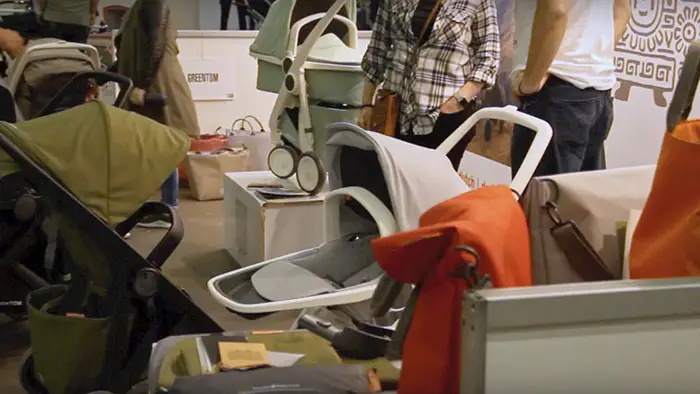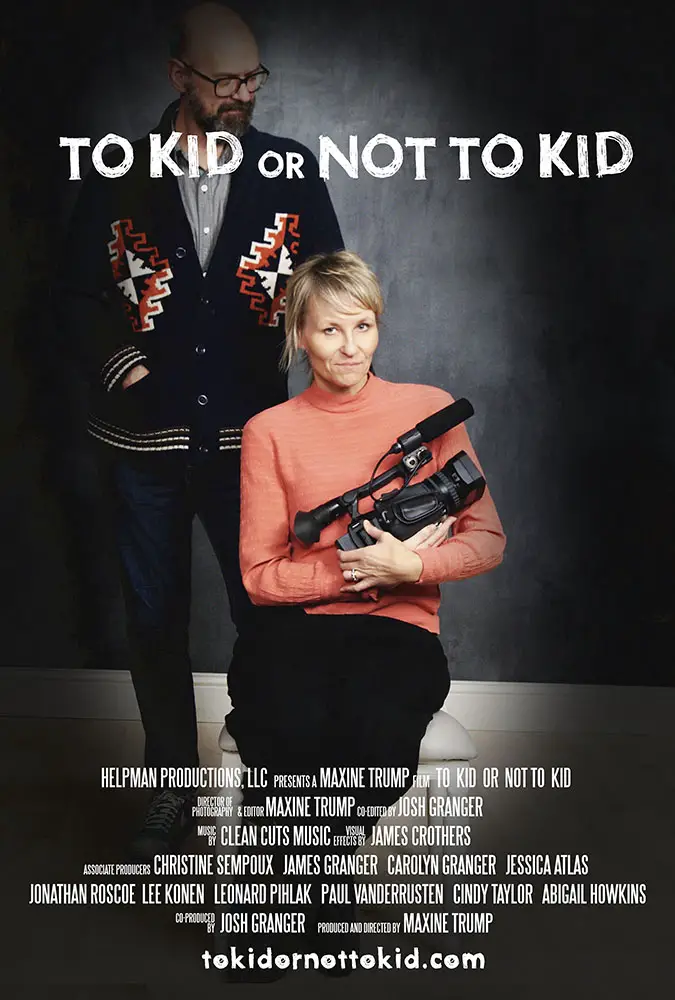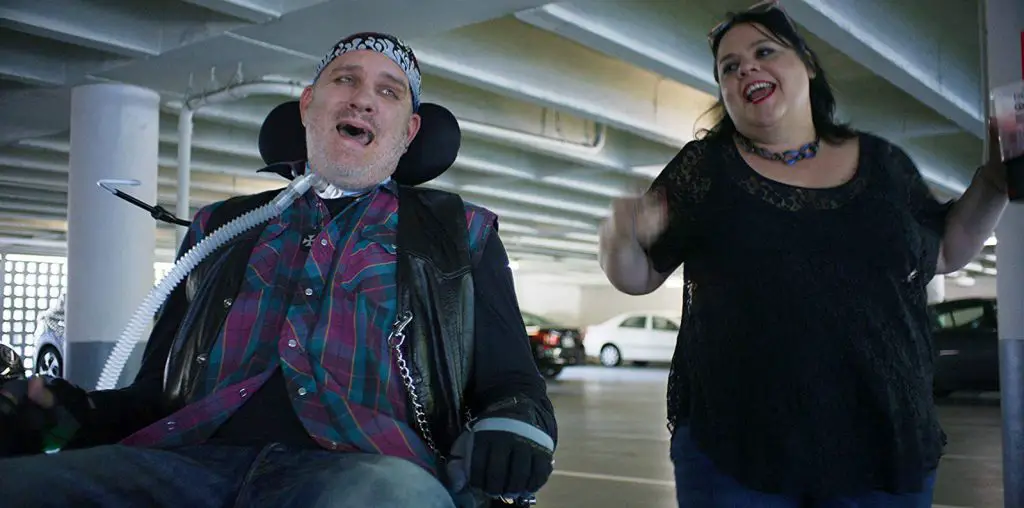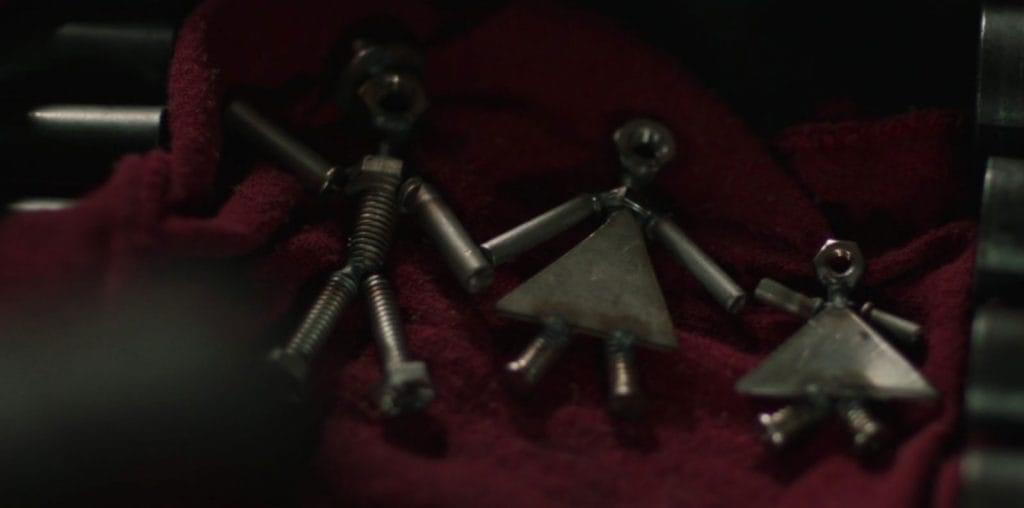
Near the end of the film, Trump is chosen as a keynote speaker for a conference. The audience is treated to the beginnings of her speech. This speech should be what opens the film. Thus the rest of To Kid Or Not To Kid is following what leads her to get invited to be a speaker. The audience can instantly recognize the personal connection to Maxine Trump. Then, while the opening credits play, have older mom/ baby-centric commercials running. Bam! The pressures society puts on women to be mothers and to have children are now presented upfront without heavy exposition slowing down the film.
To Kid Or Not To Kid does work, though. The biggest reason for that is Maxine Trump herself. She’s an engaging presence, asking tough questions, not just of herself, but also of society and advertising companies. While trying to put all the pieces together, on both sides of the argument, she discovers Not Mom.
This organization is to prop women up who have decided not to have children. Trump decides to interview a few of these people and get their perspective on everything. Through these interviews, Trump finds solace that no matter what decision she makes, people will be there to comfort and support her.

“She’s an engaging presence, asking tough questions, not just of herself, but also of society…”
But much more important for the audience’s relationship with her is the one between Trump and Granger. He goes to Norway to see his girls. While there, he is 30-minutes late in calling Trump for them to catch up and talk about their day. She lays it into him for being so late. Given that she gets to see him all the time, save for these trips to see the twins, it comes off as incredibly petty move on her part. As odd as it might sound, this small moment of misplaced frustrations makes her more relatable.
Before this, Trump is inquisitive and personable. She’s easy to root for and puts her intelligence to good use. Her probing questions, her desire to look at all possible sides, all make Trump a great host for a film like this. But the thing that makes her more than just a cipher is that phone call where she gets irrationally mad. Her professional facade fades away, and genuine emotions come forth. It is one of the first times how overwhelmed she feels comes across authentically.
To Kid Or Not To Kid needs to be restructured for its big emotions to land properly. But the movie does work, in large part due to its subject-writer-director Maxine Trump. She’s smart enough to ask questions about the big picture and still makes everything feel personal. Her interviewees have engaging stories to tell, and the whole production feels oddly sweet.

"…this small moment of misplaced frustrations makes her more relatable."


